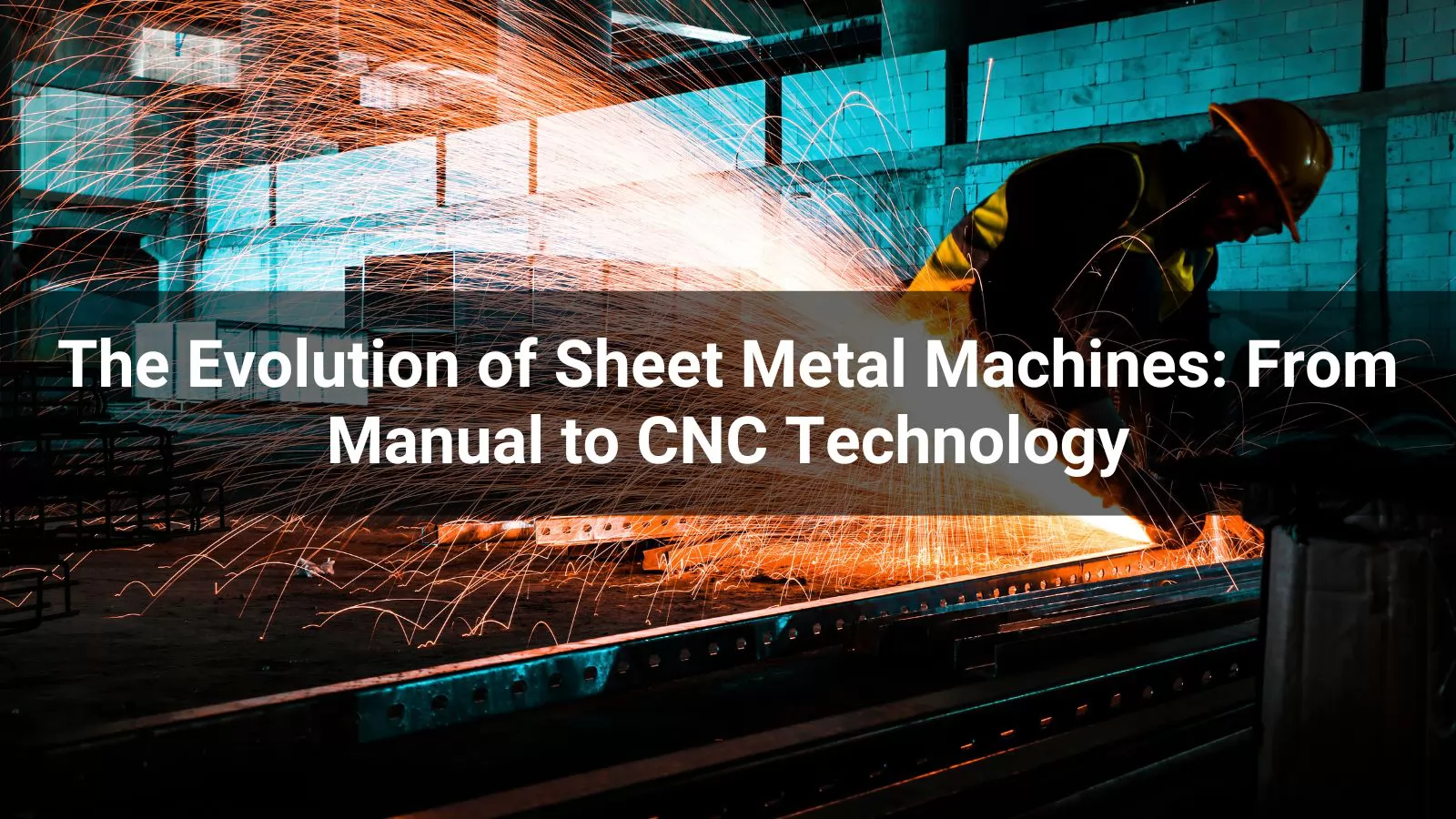





The sheet metal industry has seen tremendous changes over the decades, driven by advancements in technology and manufacturing techniques. Once dominated by manual machines requiring significant human skill and effort, the field now boasts cutting-edge CNC (Computer Numerical Control) machines that offer unparalleled precision, speed, and automation. This transformation has revolutionized how sheet metal is processed and fabricated, impacting everything from automotive to aerospace, construction, and consumer products. In this blog, we will explore the evolution of sheet metal machines and the key role CNC technology has played in shaping modern manufacturing.
In the early 20th century, sheet metalworking was a highly labor-intensive process. Manual machines were the backbone of sheet metal fabrication, including:
While these manual machines allowed skilled workers to produce metal parts, the process was slow and inconsistent, especially when precision was critical. Workers had to make calculations and measurements by hand, leading to increased chances of human error and a lack of reproducibility.
In the 1950s and 1960s, the advent of Numerical Control (NC) machines marked a significant shift toward automation. NC machines replaced manual controls with a system of punched tape, which contained instructions for the machine to follow. The machine would read these instructions and execute a series of predefined operations with greater accuracy and consistency than ever before.
Key improvements during this era included:
Despite these advances, NC machines were still somewhat limited in terms of flexibility and programming. Changes to machine operations often required physical reprogramming, which slowed down the process.
In the 1970s and 1980s, Computer Numerical Control (CNC) technology took the industry by storm. CNC machines went a step further than their NC predecessors by integrating computer systems that allowed for much more sophisticated programming and control.
The benefits of CNC technology revolutionized sheet metal manufacturing:
CNC machines can be programmed using computer software, meaning operators can input precise specifications and create highly detailed designs. This drastically reduced the need for manual reprogramming, allowing for greater flexibility and rapid adjustments during production.
CNC machines are equipped with advanced feedback loops, sensors, and controllers that ensure extremely high levels of precision. Whether cutting, punching, bending, or welding, CNC machines consistently deliver high-quality results, even for the most intricate geometries.
With the ability to easily modify programs, CNC machines drastically reduced the time required for prototyping and testing new designs. Manufacturers could quickly iterate and produce complex parts without having to wait for new tooling or manual adjustments.
CNC machines can now interface seamlessly with Computer-Aided Design (CAD) and Computer-Aided Manufacturing (CAM) software. This integration allows designers to create 3D models and automatically generate machine code, making the entire process—from design to fabrication—more streamlined and efficient.
CNC machines can operate autonomously or with minimal supervision, reducing the need for a large workforce. This automation has helped manufacturers reduce labor costs while maintaining high production quality.
Today, sheet metal machines are more advanced than ever. CNC technology has evolved to include smart machines that integrate real-time data analysis, predictive maintenance, and even artificial intelligence (AI). These "intelligent" machines can make adjustments on the fly based on sensor feedback and historical data, resulting in higher uptime and further optimization of the manufacturing process.
In addition, the rise of Industry 4.0 has facilitated the creation of connected factories where machines, operators, and data systems work together to optimize production. Features such as remote monitoring, real-time performance tracking, and automated inventory management have transformed the way manufacturers manage their operations.
The evolution of sheet metal machines shows no signs of slowing down. As new technologies emerge, we can expect even more innovations in speed, precision, and automation. The future of CNC machines will likely involve further integration with AI, advanced sensors, and real-time data analytics, allowing for fully autonomous production lines and even more customized, on-demand manufacturing.
Manufacturers will also continue to explore sustainable manufacturing practices, such as energy-efficient machines, reduced waste processes, and the use of recyclable materials in sheet metal production.
From the early days of manual machines to the intelligent, connected CNC systems of today, the evolution of sheet metal machines reflects the broader trends in manufacturing technology. CNC technology, in particular, has been a game-changer, providing manufacturers with unprecedented precision, speed, and flexibility. As we look to the future, continued innovation will drive even more advancements in the way we fabricate and process sheet metal, further pushing the boundaries of what is possible in modern manufacturing.Contact us now, Get more information and a quote!








Fastest
Installation

Top-Notch
Equipment

24/7 Customer
Support

100% Secured
Payment
